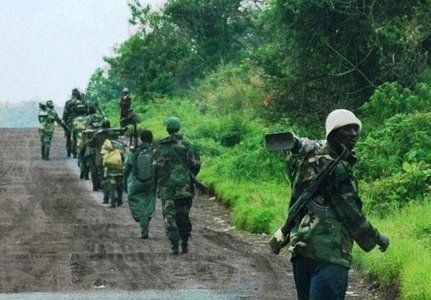
The White House on Monday welcomed the initiation of a 72-hour ceasefire in the conflict-ridden eastern Democratic Republic of the Congo (DRC) which entities involved in the conflict have agreed to.
This development is a follow-up to the confidence building measures secured during Director of National Intelligence (DNI) Avril Haines’ 19-20 November visit to the DRC and Rwanda, and her subsequent engagements with Presidents Felix Tshisekedi of the DRC and Paul Kagame of Rwanda, said Adrienne Watson, National Security Council spokesperson in the White House.
The ceasefire started “at noon Central Africa Standard Time (GMT+2), when armed forces and non-state armed groups ceased fighting to facilitate the withdrawal of forces occupying the locality of Mushaki and the RP1030 road (Kirolwire-Kitchanga),” said the White House.
Both the DRC and Rwanda have expressed their support for the US proposal, emphasizing the importance of the ceasefire in enforcing measures to build trust, safeguard civilians, and reduce tensions in the eastern DRC.
“The US Government will use its intelligence and diplomatic resources to monitor the activities by armed forces and non-state armed groups during the ceasefire. In addition, the United States supports the resumption of the Nairobi and Luanda processes, which seek to address the current and historic factors perpetuating this longstanding crisis.”
Meanwhile, earlier on Monday, at the United Nations in New York, the DRC and Rwanda were expected to take part in an open briefing at the United Nations Security Council. The session was to include closed consultations that would focus on the overall situation in the DRC, encompassing updates on the UN Organization Stabilization Mission in the DRC (MONUSCO). The US Secretary-General’s report, covering the period from 21 September 2023 to 30 November 2023, served as a pivotal reference during the briefing.
As the ceasefire unfolds, the international community remains watchful, with hopes pinned on diplomatic initiatives to pave the way for lasting peace in the troubled region where from May through September 2023, there have now been 6.9 million internally displaced people, according to the International Organization for Migration (IOM)’s Displacement Tracking Matrix.
Pearl Matibe is a Washington, DC-based foreign correspondent and media commentator with expertise on US foreign policy and international security. You may follow her on Twitter: @PearlMatibe









